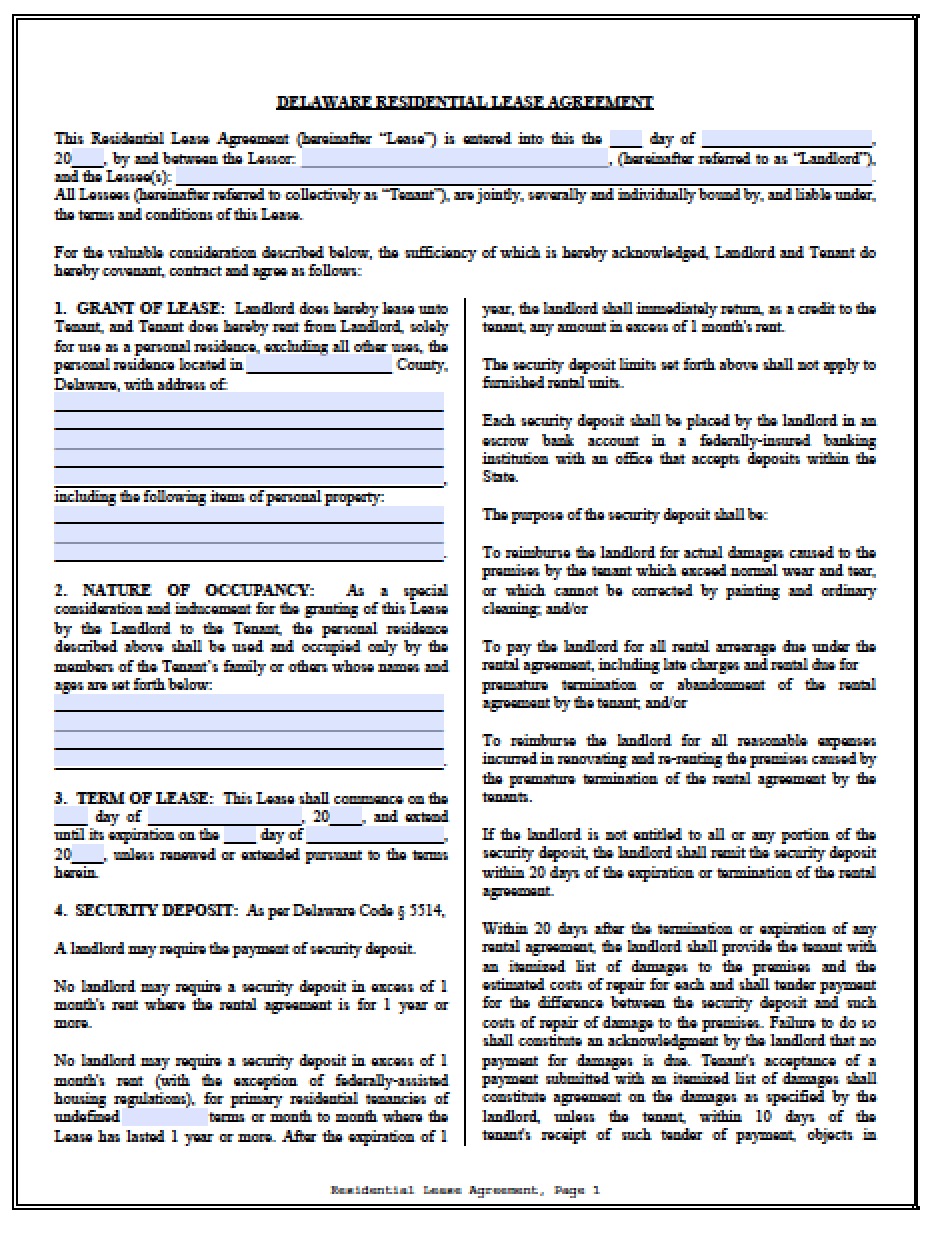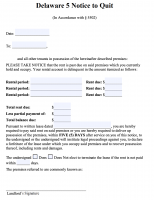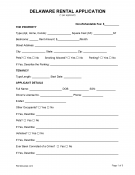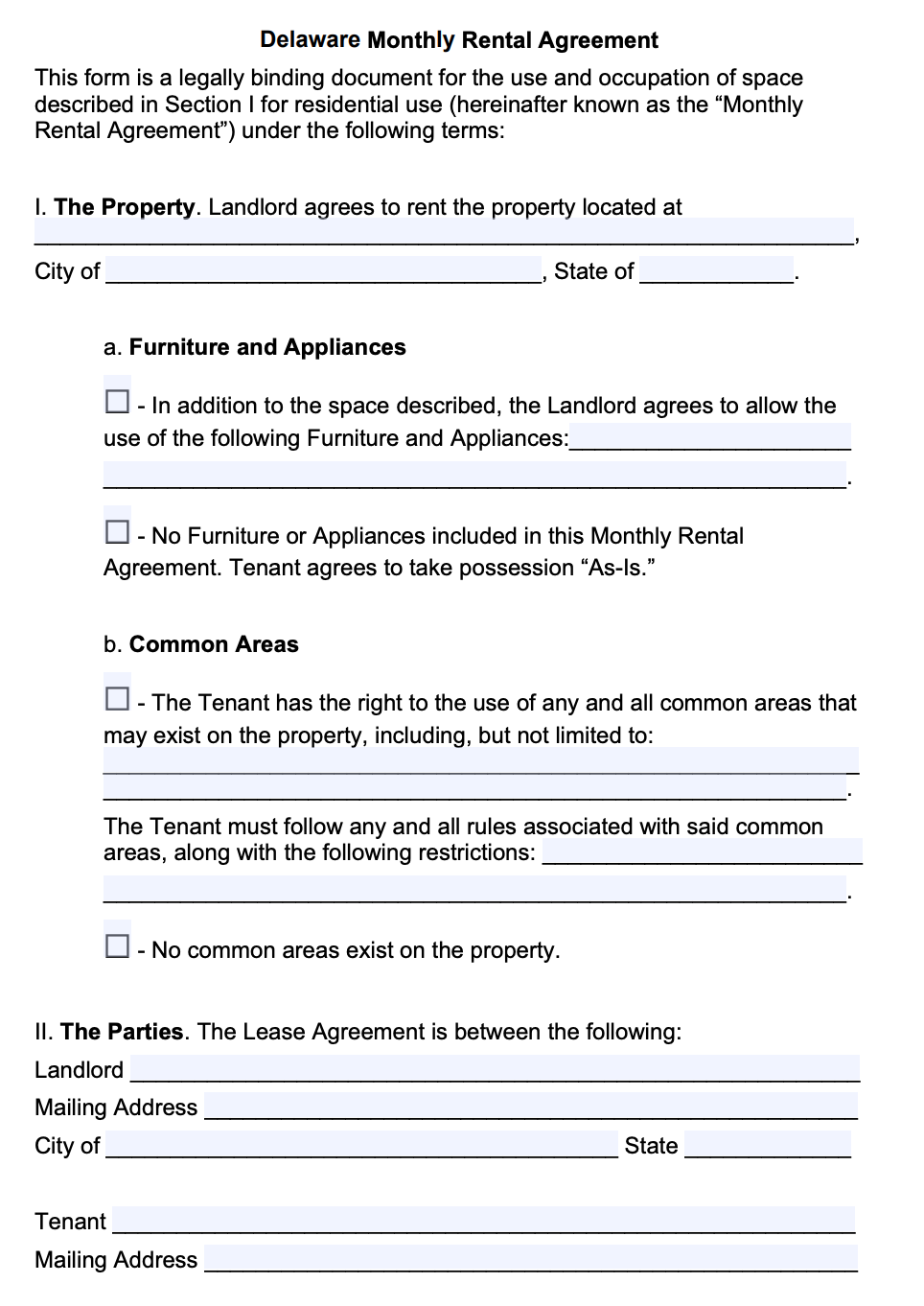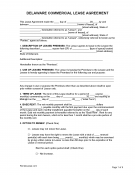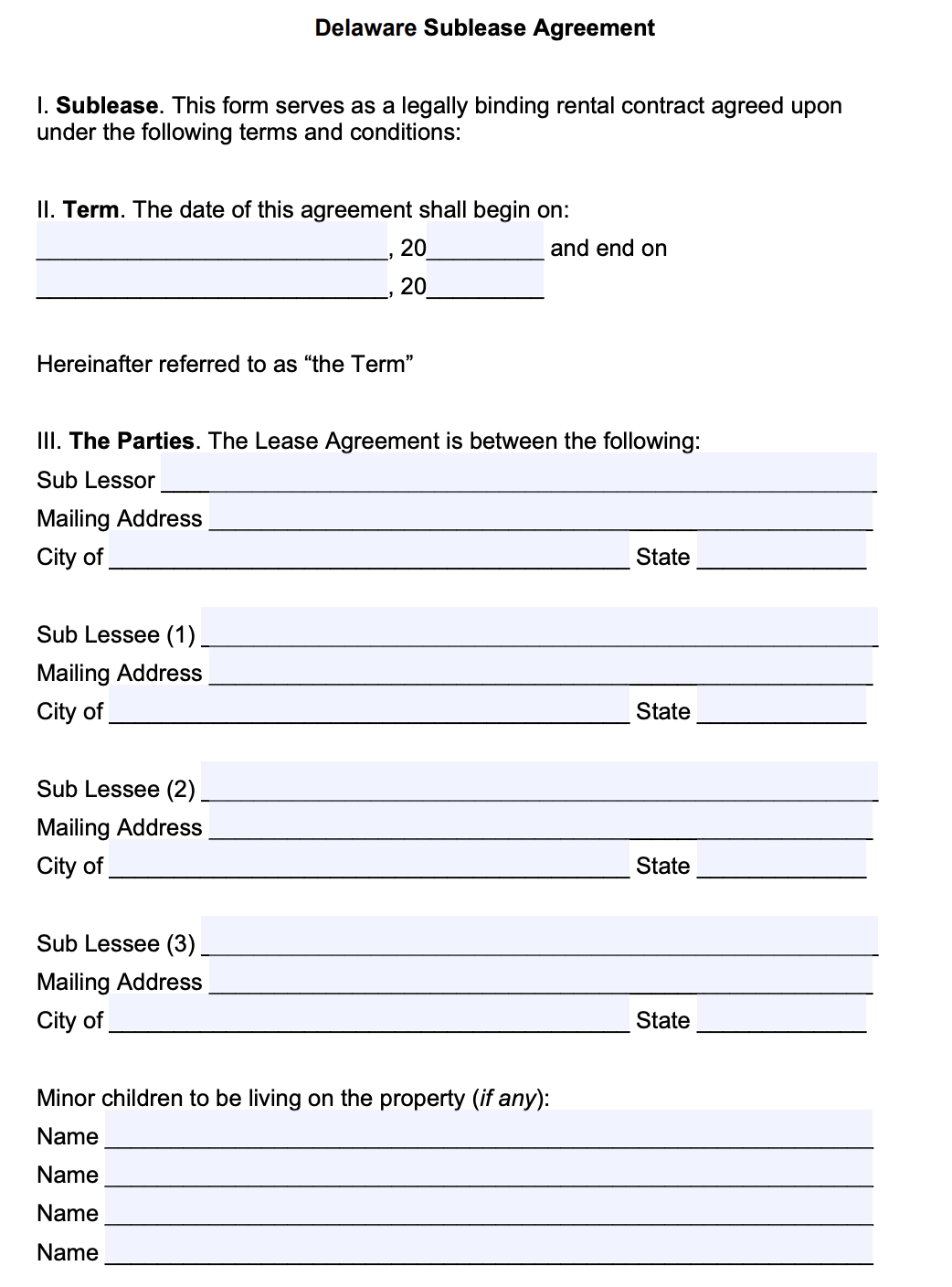Delaware lease agreements establish a binding arrangement between a landlord and tenant for the renting of a property. Before signing, the landlord will commonly verify the tenant’s income and employment through a rental application. If approved, a lease should be written and signed.
Delaware Rental Lease Agreement Templates | PDF
Delaware Lease Agreements
The Delaware Standard Residential Lease Agreement is the most common lease agreement as it provides the usual one (1) year term and enables a tenant to rent a property in exchange for monthly rent payments. The form will include provisions explaining who will be required to pay utilities, the causes of termination, the rent due date and applicable late fees, and all other terms and conditions that will dictate the relationship between parties. To ensure that the property is taken care…
The Delaware five (5) day eviction form may be used by landlords on tenants that are late on their rent. The document gives the lessee the option to pay the past due amount in full or leave the premises at the end of the period. If the tenant remains on the property and does has not paid any rent, the landlord may file the following documents with the courts in an attempt to seek repossession of the property: Complaint –…
The Delaware Rental Application is an important tool for a landlord as it can be the difference between accepting a reliable tenant and dealing with an eviction nightmare. Typically, the landlord will have each individual interested in the property complete an application to obtain employment, credit, and criminal history information. They may also demand references so they can contact previous landlords and employers to obtain a character reference. Should the applicant appear to possess all the necessary qualities of a…
The Delaware Month-to-Month lease agreement is popular with individuals who are unsure of how long they plan on staying at a particular location. This is because the contract ends and begins every month, with the option of the landlord or tenant of canceling with at least sixty (60) days’ notice (§ 25-5106), with no penalty to either party. For more permanent tenancies, a standard residential lease agreement is recommended. Because the tenant’s time is potentially short, some landlords may disregard…
A Delaware commercial lease agreement is designed for property owners looking to lease their properties out to hopeful retail, office, or industrial business owners. Like any rental contract, it is recommended that the landlord ask the applying business owner to complete a rental application to give the landlord an overview of the business owner’s credit, criminal, rental, and employment history. There are typically three (3) types of commercial lease agreements, all with different terms and conditions; they are as follows: Gross –…
The Delaware Sublease Agreement is a form often employed by college students or individuals who reside in two different cities who wish to save money on rent. The document provides the tenant with the ability to lease off their apartment or a room therein to a sublessee for a pre-determined period of time. Many landlords do not allow sublessees as it heightens the likelihood of damage to the property. For this reason, the landlord should be contacted before any applicants are…
STATE DISCLOSURES
Landlord/Tenant Code (§ 25-5118) – The landlord must give a copy of the Landlord/Tenant Code to any prospective residential tenant. See Online Version.
Landlord/Agent/Manager Information (§ 25-5105) – The agreement must state the property owner(s) as well as any person(s) authorized on the premises.
Lead-Based Paint – Federal law requiring landlords to inform their tenants, if the housing unit was built prior to 1978, that there is a chance of the existence of lead paint on the premises.
SECURITY DEPOSITS
Maximum (§ 25-5514) – Delaware allows landlords to collect up to one (1) month’s rent for all fixed residential leases. There is no limit on any tenancy at-will contracts.
Return (§ 25-5514(e)) – The landlord has twenty (20) days to return a security deposit. If the landlord made any deductions against the deposit, it must be stated in an itemized list.
LANDLORD’S ACCESS/ENTRY
A landlord must give the tenant at least two (2) days before entering the property for any standard repair or alteration (§ 5509(b)).

